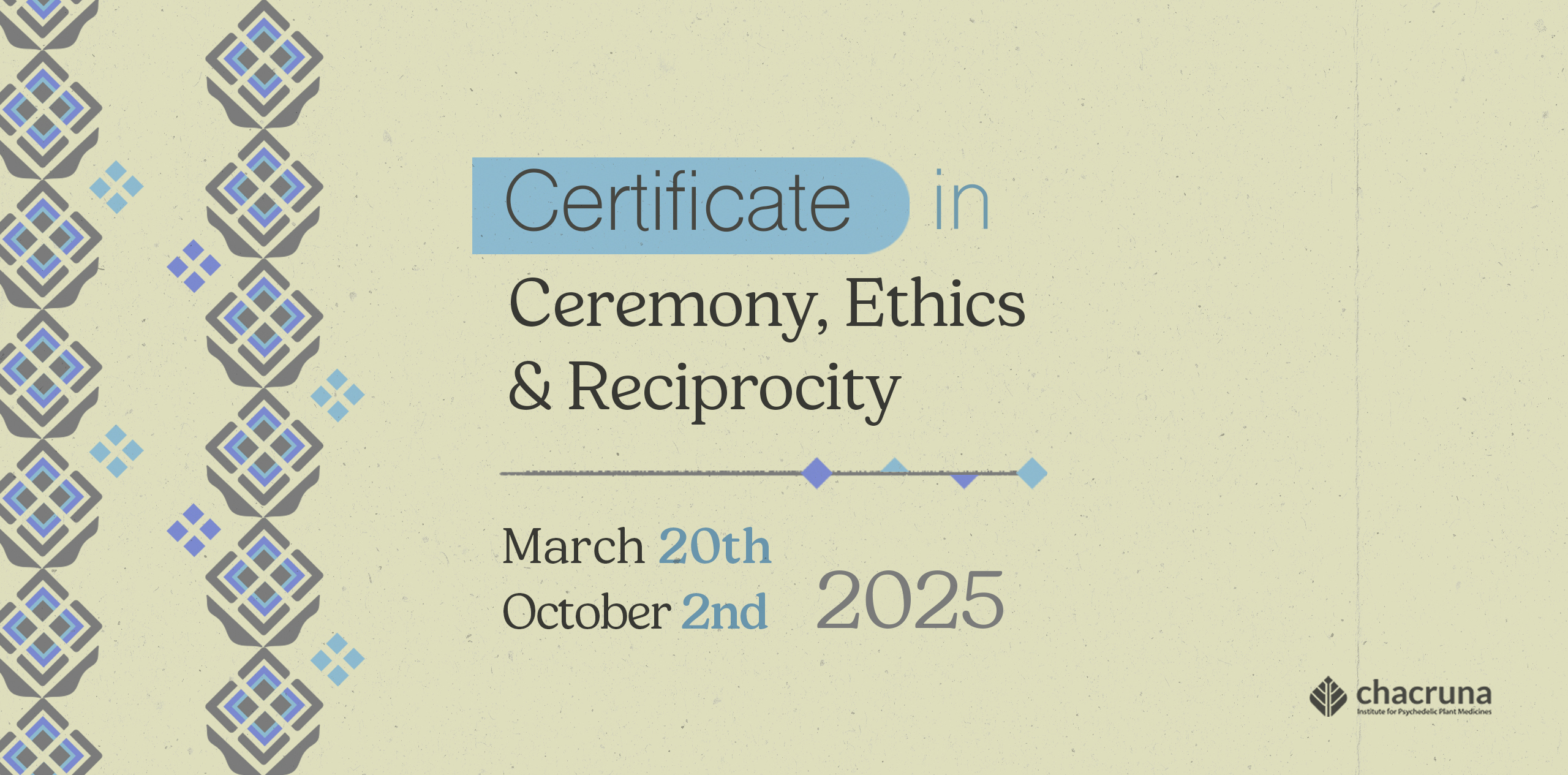- Meet Chacruna at Psychedelic Science 2025 - May 27, 2025
- Psychedelics and Attachment: Fundamentals, Implications, and New Frontiers - May 16, 2025
- Development Outreach Internship (OPEN) - May 6, 2025
Join the Journey Toward Ethical Plant Medicine Facilitation: Certificate in Ceremony, Ethics, & Reciprocity
March 20th – October 2nd 2025, 10:30am-12pm PST/1:30pm-3pm EST
Price $520 for CE credits
CE Credits Offered: 26 total
Register at our page on Thinkific!
Enrollment is now open for the Certificate in Ceremony, Ethics, & Reciprocity, an unparalleled educational program for ceremonial leaders and psychedelic facilitators seeking to deepen their knowledge and foster ethical, justice-informed practices.
What’s This Program About?
This certificate is a 6-month, 80-hour journey designed for those already facilitating or assisting in ceremonies, aiming to create a safer, more equitable, and informed space for plant medicine practices. It focuses on reducing risks, strengthening community accountability, and cultivating skills for ethical ceremonial leadership outside of traditional Indigenous contexts.

Whether you’re looking to refine your skills, gain new insights, or build bridges between ceremony and psychedelic therapies, this program provides the tools to make a meaningful impact in your community.
*This certificate does not qualify students as ceremonial leaders, facilitators, or shamans. Instead, it provides foundational education in connection, ethics, safety, and ongoing learning for those involved in psychedelic plant medicine ceremonies, whether as leaders, facilitators, guides, or participants.
What’s Included?
- Comprehensive Educational Program
From March to October 2025, participate in online weekly live discussions combined with readings and asynchronous lectures from Chacruna’s network of expert faculty. Highlights include:- Free participation in ethics-based Community Forums
- Required in person gathering featuring ethical case reviews and attendance at Psychedelic Culture Conference (PCU 2025) in San Francisco from March 28-30, 2025 (conference ticket costs included).
- Community Accountability Network
Access to one-on-one support and ethics consultation service managed by Chacruna. Consultants will promptly respond to all inquiries, providing mentoring, guidance, and support, along with recommendations for follow-up. - Experiential Approach
Dive into practical, skill-based learning alongside traditional instruction. Engage in activities, projects, simulations, and real-world experiences designed to foster critical thinking, problem-solving skills, creativity, collaboration, and personal growth. - Integration Sessions
A safe space for discussing questions, concerns, in sessions that will promote active listening, provide constructive feedback and sensitive experiences, share knowledge, and encourage self-reflection.
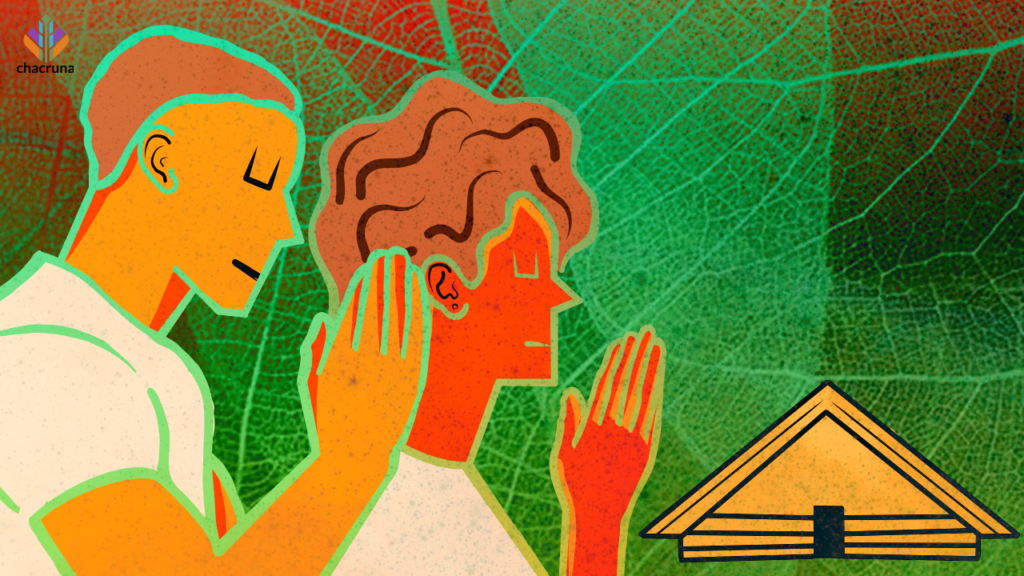
What Will You Learn?
The program covers five core areas essential for ethical plant medicine facilitation:
- Ethical Principles and Guidelines
- Safety and Risk Reduction
- Legal Considerations
- Right Use of Power & Prevention of Sexual Misconduct
- Racial Justice & Reciprocity
Tuition and Scholarships
- Total tuition: $4,000
- Scholarships: Ample opportunities are available for underrepresented communities and BIPOC participants to ensure accessibility.
- Psychedelic Culture Conference ticket included (participants are responsible for travel and accommodation).
Who Should Enroll?
This program is designed for ceremonial leaders, facilitators, and practitioners who are already active in their communities and seeking to:
- Deepen their ethical knowledge.
- Build connections with other leaders and experts in the field.
- Cultivate skills for safer, justice-informed practices.
Why This Certificate Matters
This initiative bridges the ceremonial and therapeutic worlds, integrating traditional wisdom, psychedelic science, and best practices for creating informed, ethical spaces. By fostering a robust framework of self-regulated accountability, the program supports a safer environment not just for facilitators, but for participants and the wider community.
Ready to take your practice to the next level? Prepare to join an inspiring cohort of leaders and changemakers and stay tuned for more details on CE credits soon!
Classes
Class One – Introduction
Thursday 3/20/25, 10:30am–12pm PDT/1:30pm-3pm EST
Professors: Dr. Henrique Antunes and Dr. Jamie Beachy
Class Two – Exploring Ethical Dilemmas in Medicine Circles (In Person Encounter in San Francisco)
Friday 3/28/25, 9am–12pm | recess | 1pm–4pm PDT
Professor: Dr. Henrique Antunes, Dr. Jamie Beachy and Dr. Jennifer Jones
Class Three – Intro to Ethical Facilitation (CE Credits Offered)
Thursday 4/10/25, 10:30am–12pm PDT/1:30pm-3pm EST
Professor: Dr. Jamie Beachy
Class Four – Navigating Discourse: Understanding the Narrative Dimensions of the Set and Setting(CE Credits Offered)
Thursday 4/17/25, 10:30am–12pm PDT/1:30pm-3pm EST
Professor: Adam Aronovich, MA
Class Five – Helping the Teacher Plants: Preparation and Integration for Ceremonies (CE Credits Offered)
Thursday 4/24/25, 10:30am–12pm PDT/1:30pm-3pm EST
Professor: Dr. Bruno Ramos Gomes
Class Six – Integration Session 1
Thursday 5/08/25, 10:30am–12pm PDT/1:30pm-3pm EST
Professors: Dr. Henrique Antunes and Dr. Jamie Beachy
Class Seven – Safety and Harm Reduction in Religious and Ceremonial Settings (CE Credits Offered)
Thursday 5/15/25, 10:30am–12pm PDT/1:30pm-3pm EST
Professors: Dr. Henrique Antunes and Dr. Jordan Sloshower
Class Eight – Psychedelic Benefit Maximization, Harm Reduction and Drug-Drug Interactions: Understanding Potential Risks and Benefits of Psychedelic Medicines (CE Credits Offered)
Thursday 5/22/25, 10:30am–12pm PDT/1:30pm-3pm EST
Professor: Dr. Anna (Anya) Ermakova
Class Nine – Health, Safety Protocols and Screening Process (Experiential Session 1)
Thursday 5/29/25, 10:30am–12pm PDT/1:30pm-3pm EST
Professor: Dr. Henrique Antunes and Dr. Wael Garas
Class Ten – Integration Session 2
Thursday 6/05/25, 10:30am–12pm PDT/1:30pm-3pm EST
Professors: Dr. Henrique Antunes and Dr. Bruno Ramos
Class Twelve – Legal Considerations Regarding Ceremonies, Ethics, and Reciprocity (CE Credits Offered)
Thursday 6/26/25, 10:30am–12pm PDT/1:30pm-3pm EST
Professors: Sean McAllister, J.D.
Class Thirteen – Integration Session 3
Thursday 7/10/25, 10:30am–12pm PDT/1:30pm-3pm EST
Professors: Dr. Henrique Antunes and Allison Hoots, Esq.
Class Fourteen – Participant Relations: Responsibility, Boundaries and Sexual Abuse(CE Credits Offered)
Thursday 7/17/25, 10:30am–12pm PST/1:30pm-3pm EST
Professors: Dr. Emily Sinclair
Class Fifteen – Sexual and Gender Issues in the Practice of Plant Medicine Facilitation(CE Credits Offered)
Thursday 7/24/25, 10:30am–12pm PST/1:30pm-3pm EST
Professors: Clancy Cavnar, PsyD
Class Sixteen – Right Use of Power, Relationships and Establishing Consent (Experiential Session 2)
Thursday 7/31/25, 10:30am–12pm PST/1:30pm-3pm EST
Professor: Dr. Dee Dee Goldpaugh
Class Seventeen – Integration Session 4
Thursday 8/07/25, 10:30am–12pm PDT/1:30pm-3pm EST
Professor: Dr. Henrique Antunes and Dr. Dee Dee Goldpaugh
Class Eighteen – Colonialism in Psychedelic History and Indigenous Knowledges (CE Credits Offered)
Thursday 8/14/25, 10:30am–12pm PST/1:30pm-3pm EST
Professor: Dr. Nidia A. Olvera Hernández
Class Nineteen –Decolonizing Indigenous Reciprocity in the Psychedelic Space (CE Credits Offered)
Thursday 8/21/25, 10:30am–12pm PST/1:30pm-3pm EST
Professor: Dr. Osiris Garcia Cerqueda
Class Twenty – Cultural Exchange, Appropriation and Reciprocity (Experiential Session 3)
Thursday 8/28/25, 10:30am–12pm PST/1:30pm-3pm EST
Professors: Dr. Osiris Garcia and Dr. Christine McCleave
Class Twenty-one – Psychedelics and Racial Justice (CE Credits Offered)
Thursday 9/04/25, 10:30am–12pm PST/1:30pm-3pm EST
Professors: Dr. Jennifer Jones
Class Twenty-two – Integration Session 5
Thursday 9/11/25, 10:30am–12pm PDT/1:30pm-3pm EST
Professor: Dr. Henrique Antunes and Dr. Jennifer Jones
Class Twenty-three –The Role of Entheogens in Healing the Racial Divide (CE Credits Offered)
Thursday 9/18/25, 10:30am–12pm PST/1:30pm-3pm EST
Professor: Dr. Darron Smith
Class Twenty-four – Guidelines and Best Practices (Experiential Session 4)
Thursday 9/25/25, 10:30am–12pm PST/1:30pm-3pm EST
Professors: Dr. Henrique Antunes and Dr. Jamie Beachy
Class Twenty-five – Closure
Thursday 10/2/25, 10:30am–12pm PST/1:30pm-3pm EST
Professors: Dr. Henrique Antunes and Dr. Jamie Beachy

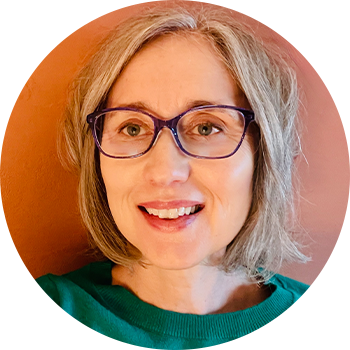
Jamie Beachy PhD, MDiv, is a professional chaplain, spiritual care educator, and ethics consultant with experience in palliative care, hospice, and trauma care. Jamie was a sub-investigator for MAPS Phase 3 clinical trials researching the safety and efficacy of MDMA-Assisted Therapy for the treatment of PTSD and currently serves as an MDMA-AT Training Consultant Jamie developed degree program offerings and curricula related to psychedelic therapies as Director of Education and Co-founder of Naropa University’s Center for Psychedelic Studies. She is currently Field Scholar with Emory’ University’s Center for Psychedelics and Spirituality. Jamie sits on the Board of Directors of the Chacruna Institute for Psychedelic Plant Medicines. She lives in the mountains above Boulder with her husband Wael Garas, an integrative physician.
Dr. Henrique Fernandes Antunes holds a Ph.D. in anthropology from the University of São Paulo (2019) and has conducted research as a visiting scholar at UC Berkeley. He earned an M.A. from the same institution in 2012 and a B.A./B.Ed. in social sciences from São Paulo State University (UNESP-FFC) in 2008. His postdoctoral work includes positions at the Centre d’Étude des Mouvements Sociaux (CEMS) at EHESS, the University of Ottawa’s Department of Classics and Religious Studies, and the International Postdoctoral Program at the Brazilian Center of Analysis and Planning (CEBRAP). Dr. Antunes is a member of CEBRAP’s Religion in the Contemporary World research group and is Research Coordinator at the Chacruna Institute for Psychedelic Plant Medicines. He is also a researcher at the Interdisciplinary Group for Psychoactive Studies (NEIP) and a Flourish Fellow at UC Berkeley’s Center for the Science of Psychedelics. His research delves into the regulation of ayahuasca both in Brazil
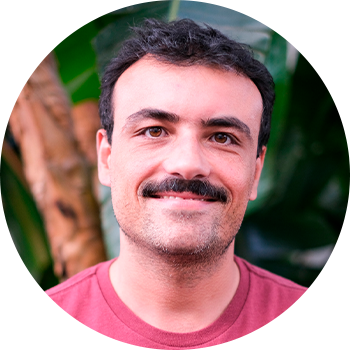
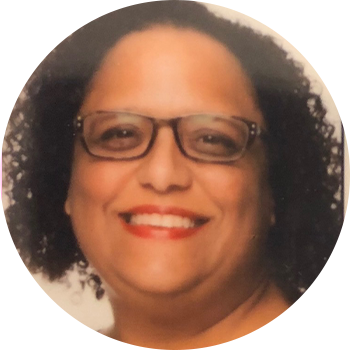
Jennifer C. Jones, PhD, LCSW, is a 54 y.o., multiracial Black, queer, fairly able-bodied, cisgender woman with U.S. citizenship. She co-founded Rising Caps Collective with Aisha Mohammed supporting expansive healing to address traumatic legacies of colonization, slavery and capitalism. Jennifer previously worked with Lykos (formerly, MAPS MPBC) as a JEDI consultant and a MAT educator. Since 1998, Jennifer has practiced trauma psychotherapy with individuals identifying as: lgbqa; transgender or gender non-binary; people of color; sex workers; substance users; experiencing class oppression; and/or HIV positive. Previously, she served as the Chief DEI Officer of Philadelphia FIGHT and as faculty and ED of Gestalt Training Institute of Philadelphia. As a parent who believes a just world is possible, Jennifer is committed to the unity of the global poor and dispossessed, organizing across color lines to fight for everyone’s economic human rights.Jennifer sits on Chacruna’s Advisory Board.
Bruno Ramos Gomes is a Brazilian psychologist, with Master’s degree in Public Health at the School of Public Health-USP, and a PhD in Public Health at University of Campinas, Brazil. In his masters, he researched the use of ayahuasca in the recovery of homeless people and drug users. In his PhD, he did a 12 month qualitative follow-up of patients treating drug dependence and depression. He has been helping patients integrate ibogaine and ayahuasca in their therapeutic processes for the last 15 years. He is a Research Associate at the Chacruna Institute for Psychedelic Plant Medicines.
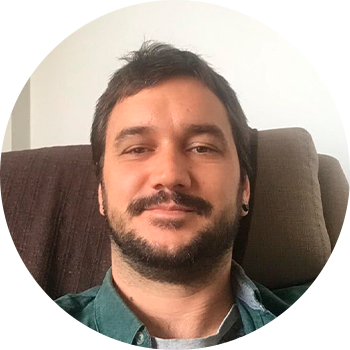
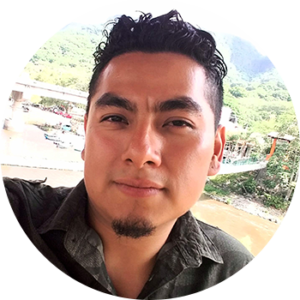
Dr. Osiris García Cerqueda is an Indigenous Mazatec historian and sociologist from Huautla de Jiménez, Oaxaca, Mexico. From a very young age, he has dedicated himself to the study of the history of his community and the practice of the ancestral ritual with psilocybin mushrooms, of which Maria Sabina was renowned. In recent years, reciprocity and restorative justice are the basis of his work of conducting a needs assessment in his community and developing activities to strengthen the Mazatec bioculture. He is the author of the book Huautla tierra de magia, de hongos y hippies [Huautla land of magic, mushrooms, and hippies] (2014) and the independent magazine, Mirador Mazateco (2010–2015). Osiris seeks to raise awareness about the impact of the Global North on the Mazatec people in this new wave of the psychedelic renaissance. He is Program Coordinator of Chacruna’s Indigenous Reciprocity Initiative of the Americas (IRI).
Adam Aronovich is a doctoral candidate in Anthropology and Communications at Universitat Rovira i Virgili in Catalonia, focusing on Medical Anthropology and Cultural Psychiatry. He is an active member of the Medical Anthropology Research Center (MARC) and has spent close to 5 years living and working in the Peruvian Amazon, conducting extensive fieldwork and qualitative research in collaboration with ICEERS, the Beckley Foundation, and, more recently, the Centre for Psychedelic Research at Imperial College. Beyond research, Adam has facilitated healing retreats and workshops in the Peruvian Amazon and, currently in Mexico. He is also a process facilitator and provides preparation and integration support in private practice and the co-founder and COO of Hidden Hand Media, a creative agency in the space of transformation and technology. Additionally, Adam sits on Chacruna’s Advisory Board.
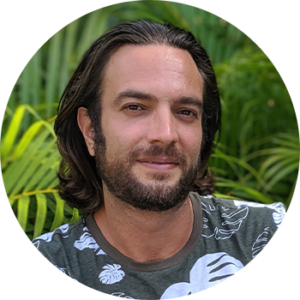
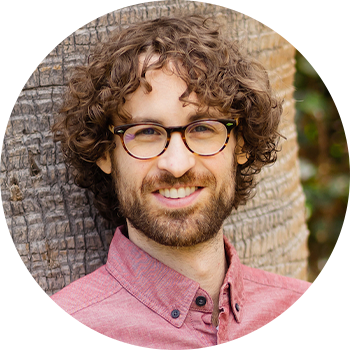
Jordan Sloshower, MD, MSc is a psychiatrist, researcher, and educator whose work focuses on therapeutic applications of psychedelic medicines, and in particular, how these novel treatments can be delivered in a manner that promotes holistic healing and social justice. He is co-founder of West Rock Wellness PLLC, an integrative mental health and wellness center in New Haven, CT. He is also a clinical instructor in the Yale Department of Psychiatry, where he co-founded the Yale Psychedelic Science Group and served as an investigator and therapist in several clinical trials of psilocybin-assisted therapy. Reflecting his commitment to ethical stewardship of psychedelic medicines, Jordan serves as a member of Chacruna Institute’s advisory board and was part of the inaugural Board of Directors of the American Psychedelic Practitioners Association. His interdisciplinary perspective is informed by training in medical anthropology and global health, and deep interests in ceremonial uses of plant medicines, Buddhist philosophy, and integrative approaches to wellness.
Anna (Anya) Ermakova has a motley background and broad research interests combining nature conservation, ethnobotany, neuroscience and psychiatry, interweaving and connecting these diverse paths through psychedelic science. Anya worked at the forefront of psychedelic research as a science officer at the Beckley Foundation, and has provided psychedelic welfare and harm reduction services with PsycareUK and Zendo. Deep love for nature and wildlife has motivated Anya to study biology at the University of Edinburgh, while a quest to understand altered states of consciousness has prompted her to specialise in neuroscience and later continued during her PhD in psychiatry at Cambridge, where she investigated the origins of psychosis. She then worked for the NHS, developing and trialing a new psychosocial intervention for psychosis. After a brief stint as a clinical trial manager, she had decided to pursue her passion for nature, by studying Conservation Science at Imperial College London, where she researched peyote ecology in Texas, USA. Anya is working as a research consultant in London. She is Research Associate at the Chacruna Institute for Psychedelic Plant Medicines. She is also board member of the Cactus Conservation Institute.
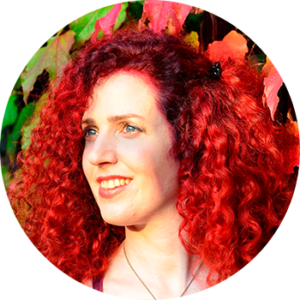
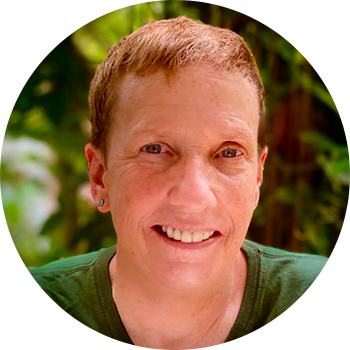
Clancy Cavnar has a doctorate in clinical psychology (Psy.D.) from John F. Kennedy University in Pleasant Hill, CA. She currently works in private practice in San Francisco, and is Co-Founder and a member of the Board of Directors of the Chacruna Institute for Psychedelic Plant Medicines. She is also a research associate of the Interdisciplinary Group for Psychoactive Studies (NEIP). She combines an eclectic array of interests and activities as clinical psychologist, artist, and researcher. She has a master of fine arts in painting from the San Francisco Art Institute, a master’s in counseling from San Francisco State University, and she completed the Certificate in Psychedelic-Assisted Therapy program at the California Institute of Integral Studies (CIIS). She is author and co-author of articles in several peer-reviewed journals and co-editor, with Beatriz Caiuby Labate, of eleven books. For more information see: http://www.drclancycavnar.com.
Darron T. Smith is associate professor in the Department of Family Medicine at the University of Washington. He is a physician assistant and US Army veteran with over twenty years of healthcare-related experience as an educator and mental health practitioner. Dr. Smith has trained with MAPS’ MDMA-assisted therapy. His research and scholarship examine US-based systems of racial oppression and systemic inequality in all societal domains, including healthcare, the family (transracial adoption), healthcare disparities, addiction, religion, sport, culture, and politics. Dr. Smith’s current research and practice intertwine the study of applied neuroscience, race-based trauma, and mental illness by looking at the impact of EEG biofeedback versus MDMA-assisted psychotherapy on brainwave activity in individuals with racial trauma (PTSD) using EEG technology. Dr. Smith sits in the Advisory Board of the Chacruna Institute for Psychedelic Plant Medicines.

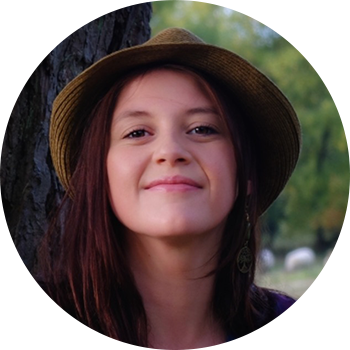
Emily Sinclair has a PhD. from the University of Durham, UK. Her research is based in Iquitos and focuses on the globalization of ayahuasca, including the contemporary revival of shamanic practice, gender, witchcraft and the healing potential of sacred plants for the body and soul. For more than two years prior to her anthropological studies, Emily lived and worked with a local healer and his family and helped them run their ayahuasca healing center. She has also worked in other centers as a facilitator in the Iquitos region. She is also a psychedelic mother and currently lives in the UK with her daughter Aeva.
Allison Hoots is an attorney with Hoots Law Practice PLLC. She has had a diverse experience practicing law, including in the legal areas of employment, corporate, employee benefits, tax, and intellectual property and advising churches’ on operation and limiting liability in their religious use of sacraments. She is Chacruna’s Law and Drug Policy Reform Advisor and the lead author of Chacruna’s Guide to RFRA and Best Practices for Psychedelic Plant Medicine Churches. Allison is also Executive Director of Sacred Plant Alliance, Inc., a self-regulating organization and professional society of spiritual practitioners with religious communities dedicated to the advancement of the ceremonial use of psychedelic sacraments within the United States. Additionally, she is Head Legal Counsel for New Yorkers for Mental Health Alternatives. Since 2017, Allison has been a founding member of the Board of Trustees and officer for a nonprofit church that uses plant medicine in prayer. Allison lives in the Hudson Valley of New York with her beloved musician husband, Sean, and two children, Vera and Archer.
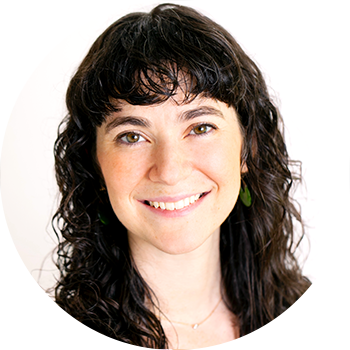
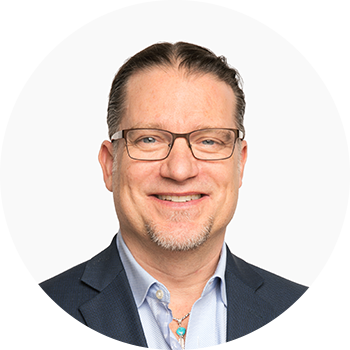
Sean T. McAllister is an attorney specializing in the regulatory, health care, business, and religious freedom aspects of psychedelic medicines and therapies. His work in psychedelics has included: Advising doctors, therapists and licensed professional on psychedelic assisted therapy (typically ketamine), including defense of licensure in disciplinary proceedings; Advising clients on religious exemptions for the use of psychedelics; Drafter of Colorado’s Proposition 122 Natural Medicine Health Act; Denver Psilocybin Mushroom Policy Review Panel member; General Counsel for the Zendo Project; Advisory Board of Sacred Plant Alliance and Psychedelic Parenthood Community; and outside general counsel to MAPS’ Psychedelic Science Events, LLC. Sean is licensed to practice law in Colorado and California.
Nidia A. Olvera Hernández is a historian and anthropologist. She has a Ph.D. in modern and contemporary history at the Mora Institute in Mexico City. Nidia earned a B.A. in ethnohistory from the National School of Anthropology and History (ENAH) and a M.A. in social anthropology from the Center for Research and Higher Studies in Social Anthropology (CIESAS), in Mexico City. Her main areas of interest are the old and modern history of psychoactive substances and drug policy. She is co-editor with Bia Labate of the book Plantas Sagradas en México: tradición, religión y ritualidad [Sacred Plants in Mexico: Tradition, Religion and Ritual, COLSAN/Chacruna Institute 2023], and author of several peer-reviewed articles. She has worked as the Project Coordinator at the United Nations on a drug treatment program, has experience working at social research consultancies and has been a professor at the Autonomous University of Mexico City and ENAH. She collaborated as the Research Associate at Chacruna Latinoamérica in México. Currently, she is a Postdoctoral Researcher for the project, “Poison, Medicine or Magic Potion. Shifting Perspectives on Drugs in Latin America (1820-2020)” at Radboud University, Netherlands.
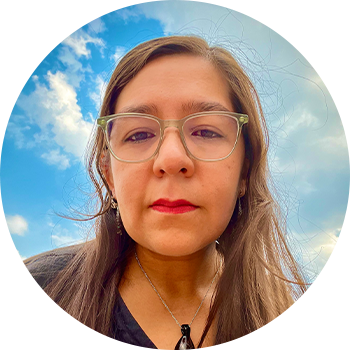
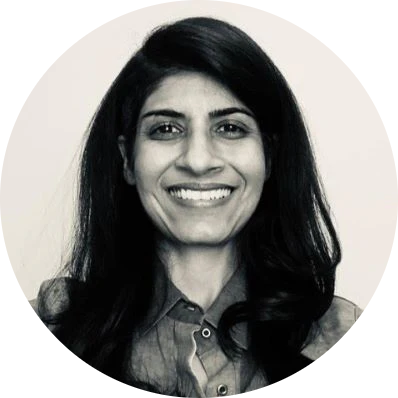
Aisha Mohammed, LMFT is a cisgender, queer, Pakistani-American woman who immigrated from Karachi to Los Angeles as a child. She has been working in harm reduction for a decade with Project SAFE, providing direct services and advocating for the human and labor rights of people who trade sex and use substances. Aisha trained as a family therapist at Drexel University and has worked primarily with low-income families of color, immigrants and people who use substances in community mental health and educational settings..
Frequently Asked Questions (FAQ)
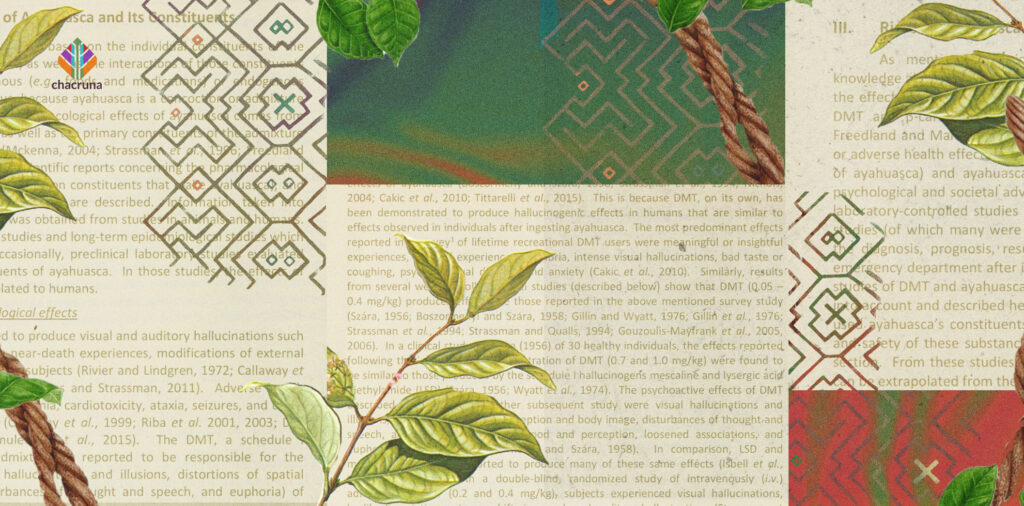
Welcome to our FAQ page! Here you’ll find answers to some of the most common questions about our program. If you have any additional questions, feel free to reach out to us at [email protected]
1. What is the format of the classes?
The course combines recorded lectures and live Zoom discussion sessions.
- Pre-recorded lectures: Available a week in advance to watch at your convenience.
- Live discussion classes: 1.5-hour Zoom meetings focused on Q&A and class discussions. Students must watch the recordings and complete readings in advance, as outlined in the syllabus. Students are expected to have watched the recordings and completed any readings ahead of time, as outlined in the syllabus.
- Experiential Sessions: 1.5-hour Zoom meetings where participants will engage in activities, projects, simulations, real-world experiences, and practical exercises that foster active learning and problem-solving skills.
- Integration Sessions: 1.5-hour Zoom meetings where enrollees will have the opportunity to come together as a cohort and discuss with one of the professors from the respective module any questions/comments/concerns over the content covered so far.
2. Are classes recorded?
No, the live discussion classes will not be recorded. The focus of these sessions is interactive, and we encourage you to participate live to make the most of the experience.
3. Will students have access to the lecture PowerPoint slides?
Lecture slides may be provided at the professor’s discretion but are not guaranteed for every class.
4. How much interaction is there with the professors?
You will have ample opportunities to interact with the professors during the live 1.5-hour live sessions. These sessions are an essential course component and they provide a supportive space to ask questions and engage deeply with the material.
5. How much time should I expect to commit to the course each week?
The program requires a weekly time commitment of approximately 3.5 hours:
- 2 hours of independent study at home (watching lectures and completing readings).
- 1.5 hours of online sessions (live Q&A/discussion with professors).
6. Is there a place to further the discussions of the course outside of class time?
Yes, in addition to the live discussion classes, you will have the opportunity to participate in monthly integration sessions. These sessions provide a space for students to continue exploring course themes and discuss insights or questions that may arise outside of the regular class schedule.
7. Will I receive a certificate of participation?
Yes, you will receive a certificate of participation upon successfully completing the course. To qualify, students must meet the attendance requirements and complete the required coursework. Detailed requirements are outlined in the course syllabus.
8. Is the in-person session mandatory?
Yes, attendance at the in-person meeting on March 28th and the Psychedelic Culture Conference on March 29th and 30th are mandatory, as these are key components of the program. If you have accessibility issues, please reach out to us at [email protected]. For more information on the Conference, follow the PCU25 website.
9. Will travel and accommodation be covered for the in-person meeting
Travel, accommodation, and other expenses for the in-person meeting are not covered by Chacruna. However, students will receive a complimentary ticket to the Psychedelic Culture Conference.
10. What is your Refund Policy?
Refunds (on Eventbrite) are not offered after 10% of the course is completed, except in cases of emergencies. For more details or to request an exception, please contact us.
11. Will there be a Payment Plan?
Yes, we offer a payment plan to make the course more accessible to students. The payment options available include up to four installments.
12. What is the attendance requirement to obtain the certificate?
To be eligible for the certificate, students must attend at least 70% of the course sessions.
13. Are there scholarships available?
Scholarships are available for underprivileged students and members of minority groups, please apply here. We encourage early applications to ensure consideration.
14. Who is eligible to apply for the program?
The program welcomes students from diverse backgrounds, including undergraduate and graduate students, facilitators, religious group members, chaplains, and anyone with a genuine interest in the field. We welcome students from all backgrounds, including:
- Undergraduate and graduate students
- Facilitators and members of religious groups
- Chaplains and ceremonial leaders
- Psychotherapists, clinicians and other wellness professionals
- Anyone with a genuine interest and experience in the field
15. How do I apply for the program?
You can apply by filling the application form here.
16. What does the certificate entail?
This certificate does not qualify students as ceremonial leaders, facilitators, or shamans. Instead, it provides foundational education in connection, ethics, safety, and ongoing learning for those involved in psychedelic plant medicine ceremonies, whether as leaders, facilitators, guides, or participants.
Take a minute to browse our stock:
Did you enjoy reading this article?
Please support Chacruna's work by donating to us. We are an independent organization and we offer free education and advocacy for psychedelic plant medicines. We are a team of dedicated volunteers!
Can you help Chacruna advance cultural understanding around these substances?


